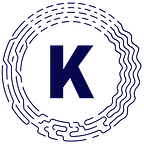Realizing the Potential of Blockchain: Developing Developers
The potential applications for blockchain technology are virtually limitless. But there’s one limitation on how quickly blockchain technology will be able to affect change across our the globe: the supply of skilled blockchain. As of December 2017, there were more than 4,000 freelance blockchain developer job postings on Upwork, a 115% increase over 2016, and demand will only continue to rise.
While the supply of qualified developers is woefully insufficient, this isn’t the first time emerging and established technologies with great potential have been slowed due to an underwhelming supply of skilled labor.
America’s Cold War Space Race
The successful launch of Sputnik I on October 4, 1957 had an immediate and lasting impact on the United States. American self-belief in its scientific superiority took a hit. After watching Russia beat America into space, over a quarter of Americans stated that Russian sciences and engineering talent was now superior to that in the US. Faced with this crisis of confidence, the US knew they had to do something.
What finally turned the tide on the Space Race? Education. A national interest in STEM (science, technology, engineering, and math) education propelled America’s Space Race and Cold War victory, and scientific superiority.
The Nuclear Industry Struggles to Keep America’s Lights On
Another industry that has, at times, lacked critically skilled labor is the utility and power industry. Undergraduate and graduate nuclear engineer program enrollment has decreased in recent years. Unfortunately, these drops aren’t paralleled by a decrease in demand. It’s no surprise, then, that power plants, and nuclear plants in particular, are looking at a shortage of tens of thousands of skilled workers.
Because higher educational institutions aren’t primed to generate the needed workers, the nuclear power industry needs to look elsewhere to solve its crisis. It’s found the solution in vocational training programs, including training thousands of veterans in the building and construction trades to address demand.
Producing vs. Consuming Skilled Labor
Another example of a skills gap is the tech industry as a whole. The Massachusetts High Technology Council published an index in 2016 which concluded that the entire state’s innovation economy is at risk due to a shortage of skilled workers.
One solution is for companies to focus on producing — not just consuming — skilled labor, says Dev Bootcamp co-founder Dave Hoover. He created a software engineer apprenticeship program which ran for five years in Chicago, with the intent of addressing the skills gap by “engaging with local, high-potential amateurs” in six-month apprenticeships.
Education Is the Missing Link
The solutions in all these scenarios has been the same: education. And just as with the Space Race, issues facing America’s nuclear industry, and a lack of qualified tech employees, education will be the answer for blockchain as well. Education and certification programs can address the existing shortfall in blockchain engineers and also help the emerging blockchain industry get ahead of the curve.
While a few major universities have just begun to offer crypto-related courses, there are currently no accredited higher education programs dedicated to blockchain development, and training program offerings are limited. Emerging coding bootcamps bring their own issues, such as lack of standardization and accreditation.
That’s why my partners and I are excited introduce Kingsland University — School of Blockchain. Kingsland is the world’s first university-accredited blockchain program. Kingsland addresses the emerging skills shortage by providing a range of high-quality, standardized blockchain and coding education programs.
Our award-winning education programs have equipped over 250,000 students with the skills they need to build the projects of tomorrow and we’re excited to continue to support the growth of the blockchain industry through Kingsland’s robust, industry-driven blockchain curriculum. To address the most immediate need for qualified blockchain engineers, we’ve begun by retraining existing software developers, who have already proven their proficiency in related languages, in order to efficiently and effectively upskill these programmers in the blockchain ecosystem.
Kingsland is the education solution the blockchain industry needs to realize blockchain’s world-changing potential.
John Souza is founder and CEO of Kingsland University — School of Blockchain, the world’s first accredited blockchain training program. Souza is driving conversations around education policy for skill and capacity building in emerging economies at the World Economic Forum, OECD and at conferences and summits around the world. Find out more about Kingsland’s leading-edge education at KingslandUniversity.com
Have questions? Ask the team on Telegram.
